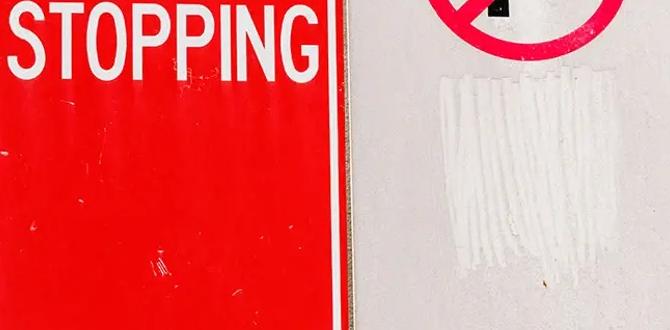Have you ever wondered why your dog loves to dig? Dogs dig for many reasons. It might be surprising, but digging is natural for them. Sometimes, it can become a problem. But don’t worry! We have great dog digging problems advice to help you and your pet. Let’s explore some ideas to stop your dog from turning your yard into a moon crater.
Key Takeaways
- Dogs dig because of boredom, instinct, or anxiety.
- Exercise and attention can reduce digging behavior.
- Provide toys to keep your dog entertained.
- Use dedicated digging zones as a solution.
- Seeking expert dog digging problems advice helps solve issues.
Understanding Why Dogs Dig
Dogs dig for various reasons. Some do it out of boredom. Others dig because instinct tells them to. It’s important to understand why your dog is digging. Knowing the reason can help you find the right solution. Start by observing when and where your dog digs. Is it near fences? Is it during specific times of the day? These clues will help you understand their behavior. You might notice your dog digs more when left alone. Or maybe they dig when they feel anxious. Identifying the reason is the first step in solving the problem.
- Observe your dog’s digging patterns.
- Take note of the times they dig.
- Check for digging near fences or gates.
- Watch for anxiety or boredom signs.
- Identify if digging is seasonal.
- Look for physical or mental stimulation needs.
- Consider breed-specific instinctual digging.
Once you understand why your dog digs, it’s easier to address the behavior. You can provide activities to keep your dog busy. If anxiety is the issue, comforting your dog can help. For dogs with strong digging instincts, a dedicated digging zone might solve the problem. Remember, patience and understanding are crucial. Addressing the root cause will help in the long run.
Fun Fact or Stats : Some dogs can dig a hole over a foot deep in just minutes!
Recognizing Signs of Boredom
Does your dog dig when left alone? This might mean they’re bored. Dogs need mental and physical stimulation to stay happy. Without it, they look for ways to entertain themselves. Digging is one such activity. You might wonder, “How do I know if my dog is bored?” Look for signs like excessive barking, chewing, or pacing. These are clues that your dog needs more activities. Providing toys and puzzles can help. Taking your dog for regular walks is also beneficial. Engaging with them through training sessions can prevent boredom. Remember, a tired dog is a happy dog!
Addressing Anxiety-Related Digging
Does your dog dig when they hear loud noises? This could be anxiety. Dogs, like humans, experience fear and stress. Loud sounds, like fireworks, can cause anxiety. In such cases, digging might be their way of coping. You can help by creating a safe space for your dog. Use calming aids, like soothing music or anxiety wraps. Spend time comforting them during stressful events. Taking steps to reduce their anxiety will help decrease their digging. Remember, comfort and reassurance are key.
Considering Breed-Specific Instincts
Some breeds dig more than others. Terriers, for example, are natural diggers. Understanding your dog’s breed can provide insight into their behavior. If your dog belongs to a digging breed, they might need an outlet for this instinct. You could create a digging pit in the yard. Train them to dig in that specific area. This way, you respect their natural instincts without sacrificing your garden. Knowing your dog’s breed will help you cater to their needs effectively.
Preventing Digging Through Exercise
Keeping your dog active is key to preventing digging problems. Regular exercise tires them out, reducing excess energy. A tired dog is less likely to dig. Take your dog for daily walks. Play fetch or frisbee in the park. Engage them in interactive games that challenge their mind. Exercise doesn’t have to be boring. It can be fun for both of you. Think of it as a bonding time with your pet. Meeting their exercise needs will go a long way in reducing unwanted digging.
- Provide daily walking sessions.
- Engage in interactive play activities.
- Include mental stimulation games.
- Offer a variety of toys.
- Consider agility training for extra fun.
- Change the exercise routine often.
Making exercise a routine ensures your dog stays happy. It prevents behaviors arising from boredom or excess energy. If your dog is tired, they are less likely to dig inappropriately. This leads to a more harmonious environment for both you and your pet. Remember, exercise is as beneficial for you as it is for your dog!
Fun Fact or Stats : Dogs need at least 30 to 60 minutes of exercise daily!
Creative Ways to Exercise Indoors
What if it’s raining outside? Indoor exercise can be just as fun. You can play hide and seek with your dog. Or set up an obstacle course using household items. Teach them new tricks or commands. Mental exercises are equally important. Puzzle toys keep their minds sharp. Rotate toys to keep things exciting. Remember, a rainy day doesn’t mean a lazy day. Indoor activities can keep your dog fit and happy all year round.
Using Toys for Physical and Mental Stimulation
Toys are more than just playthings. They help prevent boredom and unwanted behavior. Offer your dog chew toys or puzzles. These keep them occupied for hours. You can also use toys for training sessions. Reward your dog with toys for good behavior. This strengthens your bond and reduces stress. Rotate toys to maintain their interest. A variety of toys ensures your dog always has something to engage with.
Fun Games for You and Your Dog
Playing games with your dog is a great way to bond. Games like fetch or tug-of-war are simple yet effective. You can also teach your dog to play hide and seek. This game enhances their problem-solving skills. Remember to praise them for their efforts. Playtime should always be positive. It’s not just about tiring them out. It’s about spending quality time together. Games make exercise enjoyable for both you and your dog.
Creating a Dedicated Digging Zone
Sometimes, letting your dog dig is the best solution. Creating a dedicated digging zone allows them to dig freely. This way, they satisfy their natural urge without damaging your garden. Start by choosing a spot in your yard. Fill it with sand or loose soil. Bury toys or treats to encourage digging in that area. Train your dog to dig there instead of other places. Praise them when they use the zone correctly. Over time, they’ll learn where it’s okay to dig.
- Choose a section of your yard.
- Fill it with loose soil or sand.
- Hide toys or treats in the soil.
- Guide your dog to the digging zone.
- Praise them for using the zone.
- Redirect them if they dig elsewhere.
A dedicated digging zone respects your dog’s instincts. It also keeps your yard looking neat. It provides a controlled space for your dog to enjoy digging. Training them to use this zone takes time and patience. But the end result is worth it. Consistent training and rewards will make this work.
Fun Fact or Stats : Dogs dig to cool off in summer or to find hidden treasures!
Choosing the Right Spot in Your Yard
Where should you set up a digging zone? Consider your yard’s layout. Pick a spot away from delicate plants or flower beds. Ensure it’s shaded for your dog’s comfort. It should be easily accessible for you and your dog. This makes supervision easier. Think about your dog’s preferences too. Do they prefer sun or shade? These factors help in creating the perfect digging spot. Aim for a comfortable and spacious area.
Preparing the Soil for Digging
How do you prepare the soil? Use loose soil for easy digging. Sand is another great option. It’s gentle on your dog’s paws. Mix in treats or toys to make the spot more enticing. This encourages your dog to dig there. Remember to keep the soil clean and safe. Remove any sharp objects or debris. Maintaining the zone ensures your dog enjoys it. Regularly check for hazards.
Training Your Dog to Use the Zone
Training your dog to use the zone takes patience. Begin by guiding them to the area. Use treats to encourage digging there. Praise them when they dig in the right spot. Be consistent in redirecting them from inappropriate areas. Over time, they will understand where digging is allowed. Consistency and positive reinforcement are key. Remember, training is a journey, not a race.
Using Deterrents for Unwanted Digging
Sometimes, you need to deter your dog from certain areas. Deterrents can help with this. They make areas less attractive to dig. You can use scents or barriers. Citrus scents often repel dogs. Placing stakes or chicken wire can create physical barriers. It’s important to combine deterrents with positive reinforcement. Praise your dog when they avoid restricted areas. This teaches them good behavior. Remember to be gentle and consistent.
- Use citrus scents to deter dogs.
- Place stakes or barriers around restricted areas.
- Provide positive reinforcement when behaviors improve.
- Combine deterrents with training.
- Avoid harsh methods or punishment.
- Ensure deterrents are safe for pets.
Deterrents are useful tools in managing digging problems. They guide your dog away from areas you want to protect. When used correctly, they teach your dog to respect boundaries. Patience and understanding are crucial. Every dog is different, and some may respond better than others. Don’t give up if one method doesn’t work immediately.
Fun Fact or Stats : Dogs have an incredible sense of smell, up to 100,000 times stronger than humans!
Natural Scents That Deter Dogs
Did you know certain scents deter dogs from digging? Citrus is one of them. Dogs dislike the smell of lemons and oranges. You can use citrus peels or sprays around off-limit areas. Vinegar is another scent that works. Remember to use these scents safely. They should not harm your dog or plants. These natural methods are gentle yet effective. They guide your dog without causing harm or stress.
Building Physical Barriers
Physical barriers are another solution. You can use chicken wire to protect garden beds. Piling rocks can also work. These barriers stop your dog from accessing specific spots. They act as a reminder not to dig there. It’s important to make barriers safe. Ensure there are no sharp edges. Safe barriers protect your dog while guiding their behavior. They are a simple yet effective solution.
Giving Positive Reinforcement
Positive reinforcement encourages good behavior. Praise your dog when they avoid digging in restricted areas. Use treats or extra playtime as a reward. This shows them their actions are appreciated. Dogs love to please their owners. Positive reinforcement strengthens your bond. It’s more effective than punishment. Focus on rewards rather than scolding. Remember, a happy dog learns faster!
Seeking Expert Dog Digging Problems Advice
If digging continues, seek expert help. Sometimes, digging stems from deeper issues. A professional can give insights and solutions. They understand dog behavior well. An expert can tailor advice to your dog’s needs. This might include behavior modification plans. They guide you through training in a step-by-step manner. Seeking advice is a proactive step. It shows your commitment to solving the issue.
- Consult a professional for persistent issues.
- Get tailored advice for your dog’s needs.
- Learn behavior modification plans.
- Receive step-by-step training guidance.
- Understand the root causes better.
- Seek advice for healthier dog-owner relationships.
Experts provide valuable guidance. They can identify underlying causes you might miss. Their advice is based on experience and knowledge. Sometimes, an outside perspective is necessary. Don’t hesitate to reach out for help. It’s beneficial for both you and your dog. Remember, every dog is unique. Solutions may vary based on individual needs.
Fun Fact or Stats : There are over 340 dog breeds worldwide, each with unique traits!
When to Contact a Professional
You might wonder, “When should I seek professional help?” If digging persists despite your efforts, it might be time. Some dogs have underlying issues that need expert assessment. These could include anxiety, medical conditions, or behavioral problems. Professionals assess these factors. They provide a comprehensive plan to address the issues. It’s important to act early. Timely intervention ensures better outcomes. Remember, seeking help isn’t a sign of failure. It’s a step towards better understanding and resolution.
What to Expect from a Trainer
What does a dog trainer do? They evaluate your dog’s behavior. Trainers create personalized plans for each dog. They teach you techniques to manage and modify behaviors. You’ll learn how to reinforce positive actions. Consistency and patience are key in training. You might work on communication skills too. A trainer guides you through challenges. They offer support and encouragement. Working with a trainer helps both you and your pet.
Benefits of Professional Guidance
Why choose professional guidance? It offers many benefits. Experts provide insights into your dog’s behavior. They identify triggers and solutions you might miss. Their support leads to faster and more effective results. Professionals tailor advice to fit your dog’s unique needs. They help strengthen your bond with your pet. Seeking professional advice shows commitment to improving your dog’s well-being. It’s a positive step towards harmony at home.
Conclusion
Addressing your dog’s digging requires understanding and patience. Use exercise, toys, and dedicated digging zones. Try deterrents and seek expert dog digging problems advice when needed. Each dog is unique. Tailor solutions to their individual needs. With love and patience, you can manage digging problems effectively. Encourage good habits and strengthen your bond along the way.
FAQs
Question: Why does my dog keep digging in the yard?
Answer: Dogs dig for many reasons, including boredom, anxiety, or natural instincts. Understanding why your dog digs is the first step. Providing exercise, toys, and a digging zone helps reduce this behavior.
Question: How can I stop my dog from digging holes?
Answer: To stop digging, offer exercise, toys, and attention. Create a digging zone for them. Use deterrents like scents or barriers for restricted areas. Seek expert dog digging problems advice for persistent issues.
Question: Is digging harmful to my dog?
Answer: Digging isn’t harmful if done safely. Ensure your dog doesn’t ingest harmful materials. Provide a safe digging zone. Monitor them to prevent injuries.
Question: Should I use punishment to stop digging?
Answer: Punishment isn’t effective and can harm your bond. Use positive reinforcement instead. Praise and reward desired behaviors. Seek expert advice if needed.
Question: What breeds are known for digging?
Answer: Breeds like Terriers and Dachshunds are natural diggers. They have strong instincts to dig. Provide outlets for this behavior, like digging zones or toys.
Question: Can a professional help with digging problems?
Answer: Yes, professionals offer valuable dog digging problems advice. They assess behavior and provide tailored solutions. Seeking help benefits both you and your pet.
Meet Elyse Colburn, the devoted canine companion and storyteller behind the enchanting world of “Tales, Tails, and Adventures Unleashed.” A passionate dog enthusiast with a heart full of paw prints, Elyse Colburn shares heartwarming tales and insightful adventures, celebrating the joy, loyalty, and endless antics that make every dog a true hero. Join Elyse Colburn on this tail-wagging journey, where every post is a love letter to our four-legged friends.






